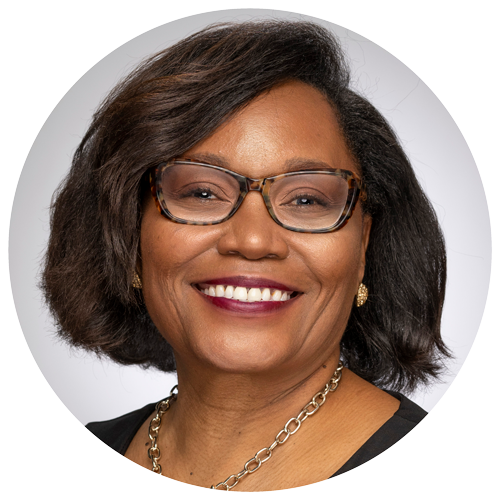
“Ubuntu [...] speaks of the very essence of being human. [We] say [...] "Hey, so-and-so has ubuntu." Then you are generous, you are hospitable, you are friendly and caring and compassionate. You share what you have. It is to say, "My humanity is caught up, is inextricably bound up, in yours." We belong in a bundle of life. We say, "A person is a person through other persons."
—Desmond Tutu, No Future Without Forgiveness
First off, permit me to say how exciting my first month in this new community has been. The experience of “new” is its own kind of spiritual discipline that begs me (and each of us inducted into new positions) to practice every day. The experience of “new” reminds me of something afresh. There is a formational aspect to the practice of community that has been true of my experience at The Upper Room and in other communities of which I have been a part. And there is an ethical aspect inherent in the practice of community.
The eternal words of the late Archbishop Desmond Tutu really help me with both the formational and ethical aspects of community. He writes, “My humanity is caught up, is inextricably bound up, in yours.” While Tutu’s challenge is ethical (how I regard the other matters), it is formational for communities as well. Community is an invitation to be formed by the other. To be molded, influenced, changed by the other, and the other by us. Community is an orientation that begs us to consider each other as the core of our humanity, the center of our work.
Tutu beckons, Ubuntu is “the very essence of being human”—generosity, hospitality, friendship, care, compassion, the practice of being human is rooted in a profound experience of knowing that human belonging is an aspect of our createdness. Each of us is similar in this sense, we have been given to human belonging from our birth. In other words, no power or principality gets to vote on whether I belong; I belong as an aspect of my givenness to life. Thus, the spiritual discipline involved in community is the practice of belonging. The discipline we are invited into is to fully sense our belonging, our full-bodied belonging, our own and that of others.
More generally what threatens community is the denial of belonging. When we deny belonging as an everyday practice, we live threatened by scarcity, fear, blame, and violence. And then we fail at community because old stereotypes tend to play in our minds about whole groups of people, the other gets “othered.” As an aside I once sat at table with a professor who told me he did not trust people who did not drink whiskey! For one person whiskey is the determining factor, for others it is gender, race and ethnicity, denomination, political affiliation, the list goes on. We need to consider how we deny another’s belonging, through flippant banter, church polity, city ordinance, etc.; this is a matter of Christian practice—the discipline of repentance and forgiveness. Acknowledging our wrongs and setting things right with people is also the practice of belonging.
One way The Upper Room creates space for community and belonging is the Academy for Spiritual Formation. My second week on the job, I attended a Five-Day Academy at Camp McDowell just outside of Birmingham, AL (pictured above). Our outstanding plenary speakers were Rev. Barbara Brown Taylor and the Rev. Dr. Ron Bell. The great hall where we ate and participated in workshops reminded me of the great hall in “Beowulf!” A huge stone hearth with a roaring fire, giant wooden beams, wooden floors, an abundance of natural light. It is a beautiful space. But I was drawn to a particular quilt. A dozen lined the walls just above door height. The colors in this quilt were deeply pigmented. The needlework was spectacularly detailed. It was a work of art, and a comrade took a picture of it for me. That quilt (as many do) reminds me of community.
There is a grace at work among us, a grace-filled artistry creating a beautiful patchwork quilt of us all. Even while we unfortunately must negotiate belonging amongst ourselves, we are already given to belonging by nature of our birth. To deny another’s belonging is to deny God, the Great Quilter. The spiritual discipline of “new” is inviting many of us again to freshly imagine belonging as a function of humanity. And what is revealed is God, at work, threading us together for the beauty of the earth for God’s good pleasure. What an invitation to belong to God and to each other in this good work!

Rev. Dr. Amy Steele joins The Upper Room staff as Executive Director of Program and Dean of The Upper Room Chapel. Amy has served as the assistant dean for student affairs and community life at Vanderbilt Divinity School for the past 10 years. Since 2019, she has become a vital partner to The Upper Room: co-sponsoring an event to honor Howard Thurman, offering Centering Prayer to the Vanderbilt Divinity School community, and most recently providing leadership in the Chapel, eCourses, and as a keynote speaker for the Resilience event. Amy is an administrator and womanist social ethicist who has deep commitments to understand faith, preaching, and social justice. Her research interests also include 20th century Black religious thought, especially the works of Howard Thurman. She lives in the Nashville area with her son, a senior in high school, and her niece and nephew.

Photograph by Beth A. Richardson / Camp McDowell, Alabama